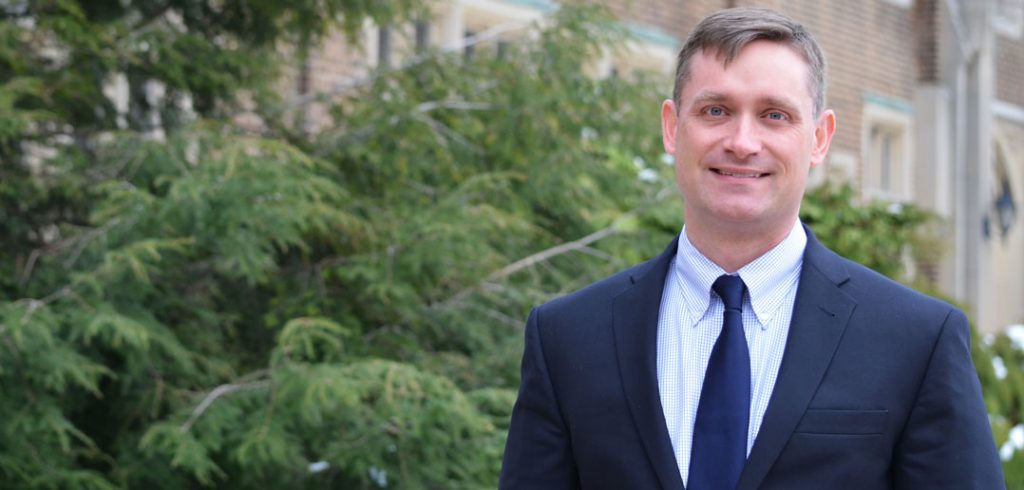When Greg Baker was reviewing applications from potential student retreat leaders, he noticed an interesting trend.
“In most of my ministry work, I’ve worked with women because we had a really hard time getting young men to show up for anything,” said Baker, who was serving as director of campus ministry at Mercyhurst University in Erie, Pennsylvania.
He wondered if the absence of young Catholic men was a sign that the programming was not relevant in their lives.
“I simply wanted to ask—where are they and what are we doing wrong?” said Baker, who graduated this year with a doctorate in ministry from Fordham’s Graduate School of Religion and Religious Education. The hybrid doctoral program allowed him to take many of his classes online and complete the degree remotely.
“Before I started this program, it was hard for me to see the direct connections between ministry, theology, and spirituality,” he said. “These were three things that I knew were central to my work, but I couldn’t always articulate or see how they all connected.”
His doctoral thesis, “Men For and With Others: Engaging the Stories of College Men and Exploring Pastoral Postures,” aimed to examine some of the challenges of reaching college-aged men of diverse backgrounds and experiences.
The project led him to research topics in philosophy, spirituality, masculinity, gender, and feminism, along with current practices related to campus ministry in Catholic universities.
He also organized a focus group with college-aged men to develop potential interview questions for other young men who were disaffiliated from their faith. He later carried out the interviews at two Catholic campuses in the Northeast.
“I was very intentional in my work, especially in my interviews with people from some diverse racial and ethnic backgrounds,” he said. “That’s where you get into layers of privilege. Privilege isn’t just about men versus women. Privilege gets wrapped up in race, culture, and sexuality as well.”
Through the interviews, Baker learned that getting young men to participate in campus ministry was not a matter of “simply winning them over.”
Too often, he said, campus ministry is focused on “trying to deliver to people the things that we want to fill them with, [like]our preset agendas,” rather than recognizing the things that are distinctive in some young men’s lives—whether they are queer, black, atheistic, or from an interfaith background.
“We’re missing the richness of people’s lives,” he said. “We’re missing the insights and the wisdom for today’s spiritual age, which is wrapped up in the lives of young people who are already navigating a lot of challenging issues that previous generations didn’t deal with.”
Having recently been promoted to vice president for mission integration at Mercyhurst, Baker, a father of four, said he is looking forward to putting the lessons he learned about student engagement into practice in his own ministry.
“Part of what campus ministry should be able to do is serve all students regardless of their faith tradition,” he said. “I’m not here to bring my truth to students. I’m here to help them uncover their own truth. I want to make myself present to their stories and the theology and spirituality already at work in their lives.”

